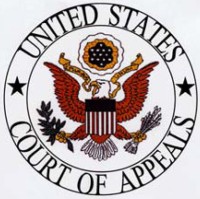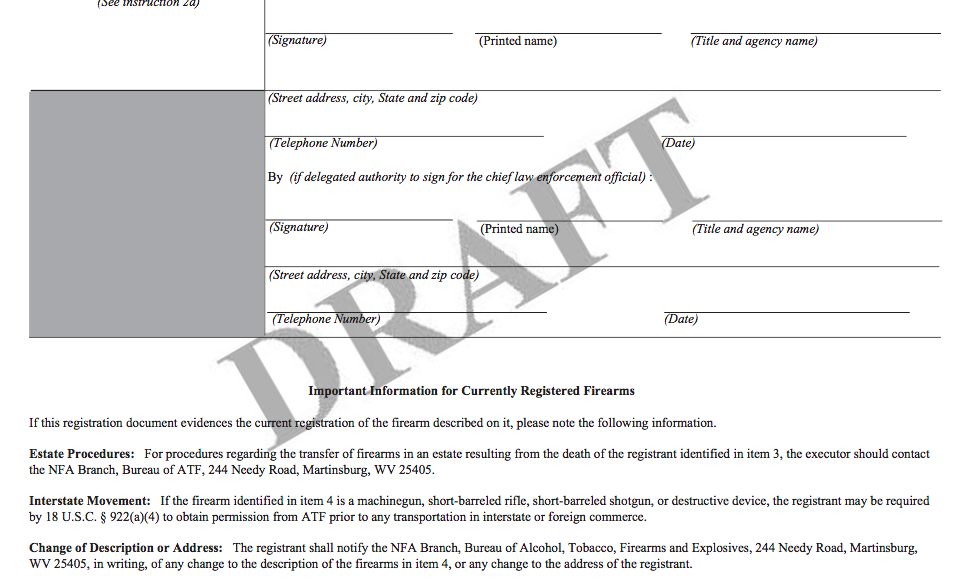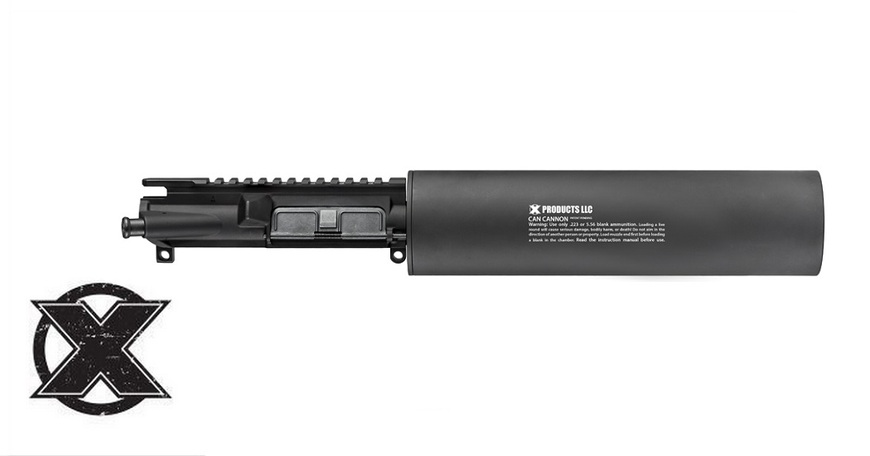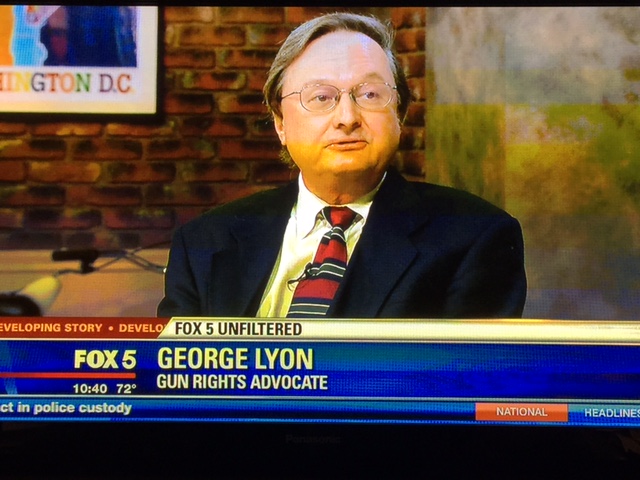 Arsenal Attorneys: A National Firm - Offices in Virginia and California
Arsenal Attorneys: A National Firm - Offices in Virginia and California
Arsenal Attorneys: A National Firm - Offices in Virginia and California
Arsenal Attorneys: A National Firm - Offices in Virginia and California
CONTACT US TODAY
800.819.0608

Arsenal Attorneys
Arsenal Attorneys is a nationwide law practice with offices in Fairfax, Virginia near Washington, DC and in Rocklin, California near Sacramento. We serve large and small clients, often remotely. Depending on the client's location, our services include estate planning, civil litigation, criminal defense, business law, landlord-tenant disputes, real estate, and firearms regulations. Our team of attorneys is licensed to serve clients in over 30 states. Contact us today to discuss your goals.
Restoring Your Firearms Rights following a Conviction in Virginia
If you have been convicted of a felony by a Virginia State Court then you are prohibited from purchasing, possessing, or transporting firearms or ammunition. However, Virginia law provides a method for you to have your gun rights restored.
The process is relatively simple, but requires two steps. First, you must have your political civil rights restored. These are the rights to vote, hold political office, serve on juries and be a notary public. Restoration for certain non-violent felonies is automatic following release from incarceration and parole supervision, subject to paying any outstanding court costs. If you have been convicted of other more serious felonies, including violent felonies, you must apply to the Governor to restore your political civil rights. If the Governor decides to do so, all of your civil rights will be restored except for your firearms rights.
To restore your firearms rights, you must file a petition with the circuit court in the jurisdiction in which reside or if you live in another state, you must file your petition in the last Virginia jurisdiction in which you were convicted of a felony. Your petition will include a number of documents, including proof that your political civil rights have been restored, the court judgement of your conviction, your criminal history and driving record, proof that you completed your sentence and have been discharged from parole, and letters of recommendation attesting to your character and rehabilitation.
Filing the petition for restoration of your firearm rights does not guarantee that the judge will grant your request. The judge will consider such things are how serious was your offense, any other offenses for which you have been convicted, how much time has elapsed since your conviction, and what you’ve done with your life since your release from confinement.
Note that if your felony conviction stems from a federal conviction, restoration of your firearm rights is likely not going to be possible. Although federal law provides a way to restore your firearm rights, since 1992, Congress has denied federal funding to process the necessary applications to restore firearm rights to persons convicted of federal offenses. However, if your federal conviction was long ago and depending on your circumstances, there may be a means to restore your firearms rights via a federal court lawsuit.
Arsenal Attorneys can help guide you through the process and prepare the necessary paperwork to restore your political and firearm rights. Contact us for more information.
DC CIRCUIT HELLER II RULING, THE GOOD, THE BAD AND THE UGLY
 By George L. Lyon, Jr, Arsenal Attorneys
By George L. Lyon, Jr, Arsenal Attorneys
On September 18 the United States Court of Appeals for the District of Columbia Circuit released its second decision in Heller v. District of Columbia (“Heller II”) striking down four aspects of DC’s gun registration program and upheld several other provisions.
The split decision of the three judge panel held that the requirements (1) to re-register firearms every three years, (2) to pass a test on DC gun laws to register a firearm, and (3) to bring a firearm to the registration office for inspection at the time of registration were unconstitutional. The court also invalidated DC’s prohibition on registering more than one handgun a month.
On the other hand, the court upheld the DC requirements that long guns be registered, that applicant’s personally appear at the Firearms Registration Office to be photographed and fingerprinted, and that applicants view a one-hour gun safety training video to register a firearm. The court also upheld DC’s $35 fee for fingerprinting and $13 per firearm registration fee. The DC Circuit had previously upheld in a 2-1 decision DC’s requirement to register handguns and its prohibition of so-called assault weapons.
Senior Judge Douglas Ginsburg wrote the Court’s opinion. He was joined by recent Obama appointee Judge Patricia A. Millett. Judge Millett happens to know something about self-defense, being a second-degree black belt. Judge Karen LeCraft Henderson dissented in part and would have upheld each of DC’s firearm regulations.
There is both good and bad in the court’s majority opinion. First the good. The good is that the court actually conducted a reasoned analysis of the challenged regulations and of DC’s arguments in support, rather than simply accepting DC’s rationale for adopting them. The bad part of the decision is that the court adhered to a “substantial evidence” standard by which it would uphold a challenged regulation if DC could show “substantial evidence” that the challenged regulation addresses a meaningful harm. This is a standard that grants great deference to the judgment of the legislators, and one which is not appropriate when fundamental Constitutional rights are at stake. However, it is not a wholly toothless standard.
Significantly, the court rejected DC’s claim that the regulations were justified on the basis of officer safety. DC had argued that the registration requirements were necessary for police to know whether a firearm was likely present when responding to a call for service. That rationale failed the court’s application of the substantial evidence test given evidence that DC police are trained to always assume the potential presence of deadly weapons. Moreover, the evidence showed that officers are rarely if ever informed in the course of a call whether the caller possesses a firearm. Thus, the court rejected the view that officer safety, although certainly a legitimate interest, was rationally related to the challenged regulations.
On the other hand, the court found DC’s interest in crime control and public safety sufficient to uphold certain of the regulations. The court purported to weigh the burden DC’s various regulations imposed on citizens’ Second Amendment rights. Although the court found that the long gun registration amounted to a de minimis burden on Second Amendment rights and therefore upheld that requirement, it held that various elements of DC’s registration scheme exacted a more substantial burden, requiring DC to show substantial evidence that they promoted public safety and that they were not substantially broader than necessary to achieve that goal.
The court said the provisions upheld were supported by evidence that they contributed to public safety. For example, in the court’s view, requiring viewing of a gun safety video was self-evidently related to preventing firearm mishaps. Likewise, in the court’s view, the requirements for fingerprints, a photograph and in-person registration contributed to ensuring the identification of firearm registrants and preventing prohibited persons from possessing firearms. On the other hand, the court could find no basis in public safety in requiring registrants to pass a test on DC firearms laws. Nor did the court find any public safety basis for requiring a firearm to be brought to MPD for inspection. To the contrary, the court postulated that requiring a registrant to transport a gun to the police station could result in the gun being stolen or the citizen being shot by police mistakenly. Similarly, the court found that DC had not shown substantial evidence that the re-registration requirement promoted any important governmental interest.
Finally, the court rejected DC’s argument that a one gun a month rule would aid in preventing firearms trafficking and limiting the number of guns in circulation. The court acknowledged that some evidence was presented that limiting gun purchases could reduce trafficking in firearms, but the court said DC had presented no evidence that limiting gun registration to one gun a month would do so. Moreover, the court rejected the argument that limiting the number of guns present in the home would reduce the chance for accidents, suicide or violence. Accepting that as true, said the court, would by logic justify a total ban on guns in the home, a proposition which the Heller I case rejected.
The court’s discussion of the one gun a month regulation is important because it underlies a key question presented in the Wrenn case, which is a pending challenge to DC’s may issue concealed carry policy. In Wrenn, DC is arguing that limiting the number of handguns carried contributes to public safety, which is an argument every ‘may issue’ state has put forth in justifying restrictive permit issuance schemes (and an argument both Illinois and DC put forth to justify their prior unconstitutional no-issue schemes). In essence DC now seeks to justify its ‘may issue’ policy as a gun-rationing scheme to limit the number of persons authorized to carry a firearm outside the home. The court should reject that argument for the same reason as the court rejected the one gun a month regulation, because the logic behind such a regulation would support allowing no one to exercise their right to bear arms.
As mentioned above, Judge Henderson dissented from that portion of the opinion invalidating any of DC’s registration requirements. In doing so she maintains a perfect anti-gun record, having dissented in Heller I, having voted to uphold DC’s so-called assault weapons ban in a prior Heller II decision, and having recently dissented from the remand of a challenged to a provision of the 1968 Gun Control Act. This the ugly aspect of the case. Judge Henderson’s dissent essentially argues that the fundamental right to own firearms (which she apparently didn’t accept in Heller I) should be treated differently from other fundamental rights and that the courts should be more accepting of legislative judgements impinging on firearms rights. Judge Henderson also postulated a theory the Supreme Court rejected in Heller I that the District of Columbia as the seat of government is different from the rest of the country. In essence that the entire city is a sensitive area. In her words, “walking around this town, one gets the impression that it is one big government building.”
Decisions of several other U.S. Circuit Courts of Appeals show that Judge Henderson is not alone. These issues will likely remain unsettled until the Supreme Court takes another Second Amendment case.
Does Your eFile NFA Tax Stamp Say Draft?
 On rare occasions, some of our NFA clients have received approved Form 1’s submitted through the BATFE’s eFile system with the word “DRAFT” watermarked across each page of their tax stamp approved with an ATF agent’s signature.
On rare occasions, some of our NFA clients have received approved Form 1’s submitted through the BATFE’s eFile system with the word “DRAFT” watermarked across each page of their tax stamp approved with an ATF agent’s signature.
While your tax stamp and NFA firearms registration is most likely valid in these cases, the draft watermark on your documents is a technical error by the ATF requiring a correction.
You may request a corrected form by sending an email to your ATF examiner, or directly to eForms.Request [at] atf.gov.
Be sure to reference the DRAFT watermark still present on your approved tax stamp, and also include the serial number of the respective NFA firearm as well as the control number issued on the top left of your eForm. ATF response times vary for corrected documents, but we have seen relatively quick corrective actions completed in as little as a couple of days.
Arsenal Attorneys TM is dedicated to helping our clients navigate the NFA regulations and ATF policies. If you have questions about NFA firearms, we welcome you to contact us.
ATF Says Soda Can Launcher is NFA Firearm
 [Note: X Products have changed the design of their Can Cannon so it no longer must comply with the National Firearms Act. For more details see our blog from April 2016. The following information provides background information when ATF declared the previous design of the Can Cannon an SBR].
[Note: X Products have changed the design of their Can Cannon so it no longer must comply with the National Firearms Act. For more details see our blog from April 2016. The following information provides background information when ATF declared the previous design of the Can Cannon an SBR].
Yesterday we learned of another example of how ATF policies can cause surprise and confusion as well as concern about the future.
X Products LLC market a product called the Can Cannon, which launches soda cans using a device attached to an AR-15 lower receiver. It uses blank 5.56 NATO cartridges for the necessary propulsion. As a novelty item, it enjoyed considerable publicity as an alternative to a firearm and conventional ammunition.
That changed today when the company announced that ATF had classified the Can Cannon as a firearm regulated under the National Firearms Act (“NFA”). The announcement from X Products LLC follows:
Dear Customers,
We recently received a complete evaluation from the [ATF] on the legal status of the Can Cannon dated: August 26th, Received September 11, 2015. The evaluation of the Can Cannon as currently produced is in and of itself not a firearm and not controlled, however when placed on a rifle receiver is considered a (SBR) short barrel rifle, and when placed on a pistol (AOW) any other weapon.
We are submitting a revised design to address the issues in the [ATF]’s determination letter. We will update our customers throughout this process.
For any questions or inquiries about this matter, please email warranty@xproducts.com
A copy of the determination letter will be available on our site shortly.
Best Regards,
X Products LLC
Besides the impact on the bottom line of X Products LLC, this decision creates an immediate legal risk for customers who already possess a Can Cannon. Those devices are now NFA controlled firearms and require registration with ATF and payment of a tax ($200 in the case of an SBR or $5 for an AOW). It’s likely some of those customers will not learn about this ATF decision, and they will make no attempt to complete the registration process potentially exposing themselves to felony prosecution for the unregistered possession of an NFA firearm.
For those who intend to comply with NFA regulations, they face red tape and possible difficulty or impossibility of obtaining the signature of their Chief Law Enforcement Officer (CLEO), such as their sheriff. They must also ensure no one else has possible access to their Can Cannon outside of their presence and control. Inheritance also becomes a problem particularly because such an item could be mishandled if the owner dies or becomes incapacitated.
The Arsenal Gun Trust™ addresses these very concerns by making NFA registration simpler and safer. The Arsenal Gun Trust™ avoids the burdensome NFA requirements of fingerprints, photographs, and CLEO signature. Our Trust design also allows possession by other people, and in most states our solution can provide an estate plan for your Can Cannon and the rest of your gun collection.
In conclusion, its important to monitor changes in ATF regulations and firearms laws that could affect your existing gun collection. In fact, during gun control debate in the US Congress in early 2013, some called for the NFA rules to be extended to all firearms. For help with a Can Cannon, other NFA firearms, and estate planning, contact Arsenal Attorneys™ to learn about the Arsenal Gun Trust™.
Fox News-DC Features George Lyon on Murder of Reporters and Gun Control Debate
Attorney George Lyon of our law firm appeared on Fox News' Washington, DC affiliate this evening to address gun control issues in light of today's murder of two TV journalists during a live broadcast near Roanoake, Virginia.
"Today's murder of two young TV journalists in Virginia by a deranged former co-worker -- who passed a background check for his gun purchase -- demonstrates not that we need more gun control laws, but that we need to examine our mental health system to better identify and treat potentially violent individuals," Mr. Lyon said.
He continued, "Calls for more gun control will do nothing to prevent future tragedies like what happened today. The murderer in Southwest Virginia passed a background check just like so many other perpetrators of recent mass killings."
Drawing on his experience as a firearms instructor, Mr. Lyon said "While I support being armed when out and about, it's likely nothing could have been done to prevent today's killing even if the victims had been armed. The murderer stalked these reporters and attacked them at a time they were most defenseless, in the middle of an interview. Events like today's nevertheless underscore that it is important to maintain situational awareness even when task fixated and to have the means to defend your life if attacked."
In closing, Mr. Lyon called for teaching America's youth that problems must not be solved with violence.
George Lyon is one of the original plaintiffs of the Supreme Court's landmark Heller decision. He is also a plaintiff in the Palmer case which compelled the District of Columbia to issues permits for carrying concealed firearms. He serves clients of our firm in a variety of matters, including firearms law, civil litigation, commercial law, and administrative law.
Arsenal Gun Trusts Now Available in Vermont
 As of July 2, 2015, Vermont legalized the ownership of suppressors, and Arsenal Attorneys immediately thereafter extended its Arsenal Gun Trust services to the Green Mountain State.
As of July 2, 2015, Vermont legalized the ownership of suppressors, and Arsenal Attorneys immediately thereafter extended its Arsenal Gun Trust services to the Green Mountain State.
Our law firm serves clients directly, with no middle man. Clients enjoy the full benefits of an attorney-client relationship and follow on support that only a law firm can provide. We offer clients a personal consultation and legal solutions customized for their individual needs.
The Arsenal Gun Trust is a highly personalized solution offered through a very convenient process. Regardless of their location, clients in the states we serve may take advantage of our services through teleconferences, email, and priority US mail delivery of their finished documents. These clients turn to our firm because of our leadership in the field, and particularly because of the proximity of our main office in the Washington, DC area to the headquarters of the Bureau of Alcohol, Tobacco, Firearms, and Explosives, and the National Rifle Association.
Contact us to learn more about our services.

